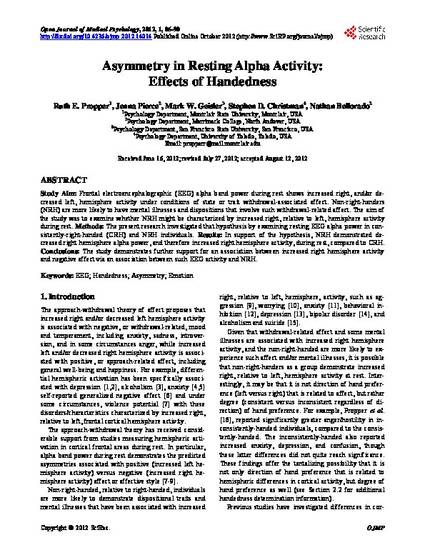
Frontal electroencephalographic (EEG) alpha band power during rest shows increased right, and/or decreased left, hemisphere activity under conditions of state or trait withdrawal-associated effect. Non-right-handers (NRH) are more likely to have mental illnesses and dispositions that involve such withdrawal-related effect. The aim of the study was to examine whether NRH might be characterized by increased right, relative to left, hemisphere activity during rest. Methods: The present research investigated that hypothesis by examining resting EEG alpha power in consistently-right-handed (CRH) and NRH individuals. Results: In support of the hypothesis, NRH demonstrated decreased right hemisphere alpha power, and therefore increased right hemisphere activity, during rest, compared to CRH.Conclusions: The study demonstrates further support for an association between increased right hemisphere activity and negative affect via an association between such EEG activity and NRH.
Available at: http://works.bepress.com/ruth-propper/2/
